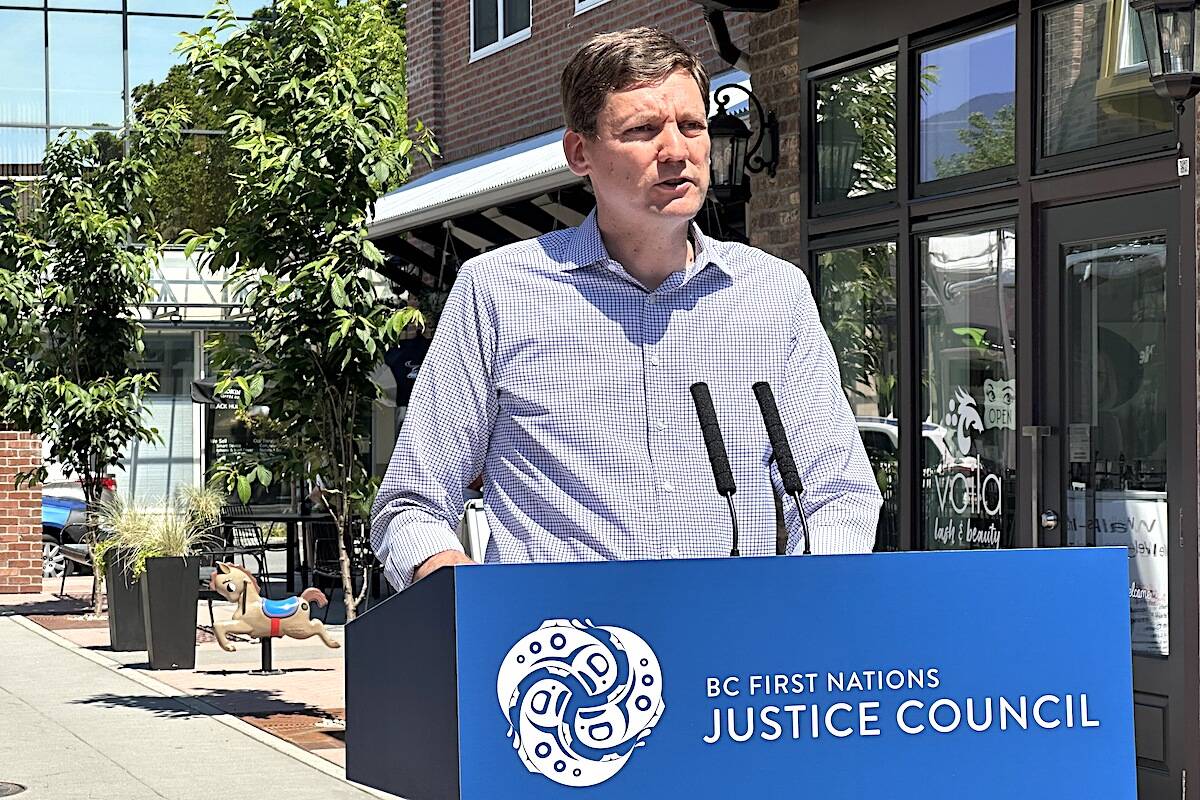B.C.’s premier remains opposed to plans that could see parts of a major provincial industry fall into the hands of foreign ownership.
“I guess it’s hard to say enough times my anxiety about a company with a corporate record like Glencore buying major assets in British Columbia, particularly in the Elk Valley,” David Eby said Monday (June 12) at an unrelated event.
“This is an area of the province where there are literally 1,000s of jobs that are dependent on good relationships with First Nations in the area…to be able to continue, as well as with the United States, given cross-border issues that have been raised by that country.”
Eby made these comments after news broke that Swiss-based Glencore made an offer to buy the steelmaking coal business of Teck Resources Ltd. for a reported amount of $US 8.2 billion. Glencore said in a statement Monday that it would pay cash for the assets, but did not say how much.
Vancouver-based Teck is one of the largest mining companies in the world with operations across North and South America. Its profitable steelmaking coal business has drawn interest from several buyers.
Glencore said it remains open to purchasing all of Teck, but that it has made an alternative offer for the coal operations, which it would combine with its own thermal coal assets. It appears to be aiming for one of the most attractive parts of the company, but even this scaled-down offer has drawn opposition.
“It’s an incredibly delicate time for that major economic driver in that part of our province and I’m very nervous about a company with a record of paying so much money out in relation to allegations of corruption coming in to potentially take over that major resource at such a sensitive time,” Eby said.
RELATED: Glencore makes offer for the steelmaking coal business of Teck Resources
RELATED: Glencore willing to take Teck Resources bid directly to shareholders
RELATED: B.C.’s Teck Resources rejects latest Swiss takeover bid
RELATED: Teck Resources to split company and spin off steelmaking coal business
Eby was referring to penalties of more than $1.1 billion paid by Glencore to the U.S., tied to concealed payments made to foreign officials in resource-rich African countries and Brazil. Glencore pled guilty in May 2022 to charges, which essentially accused the company of handing out bribes to evade political scrutiny and environmental regulation for more than decade.
Steelmaking coal — also known as metallurgical coal — is one of B.C.’s most important resources, accounting for 95 per cent of all mined coal in the province. While production has been declining, it remains essential to the production of key industrial goods needed for the decarbonization of the economy.
Eby said that government has shared its concerns with Teck officials when urging them to reject an earlier Glencore proposal.
“I know there are other offers on the table and and I hope that Teck is able to look at that because this is an incredibly important economic piece of our province,” Eby said, adding Ottawa is aware of B.C.’s position.
“We shared our concern with the federal government, which ultimately have the ability to decide whether a takeover like this is in the best interest of Canada.”
Teck acknowledged Monday in a release that Glencore is among several parties showing interest in its steelmaking coal business.
“The high degree of interest expressed by a wide range of parties underscores the value of Teck’s high-margin, long-life steelmaking coal assets,” it reads. “Teck intends to continue to engage with all parties that have indicated interest to identify a path that realizes value for shareholders while ensuring continued responsible operations in the Elk Valley to support a sustainable future for the benefit of employees, local communities and Indigenous Peoples.”
Questions about the future of Teck have appeared as the provincial mining industry has been emphasizing its strategic importance and reliability in the global search for key resources, a search increasingly guided by environmental and geopolitical factors.
Interest in Teck’s steelmaking coal business has also increased as negotiating teams for Canada and the United States continue to update the Columbia River Treaty, a central instrument governing economic and environmental issues in Teck’s Elk Valley operations, which have been subject to environmental criticism.
Negotiations updating the treaty ratified in 1964 have been underway since 2018 and recently led to interim agreements sharing treaty-generated revenue with three First Nations.
Ktunaxa Nation, Secwepemc Nation and Syilx Okanagan Nation each receive five per cent of the revenue generated through the sale of Canada’s share of downstream power benefits under the treaty.
-with files from Canadian Press
@wolfgangdepner
wolfgang.depner@blackpress.ca
Like us on Facebook and follow us on Twitter.

